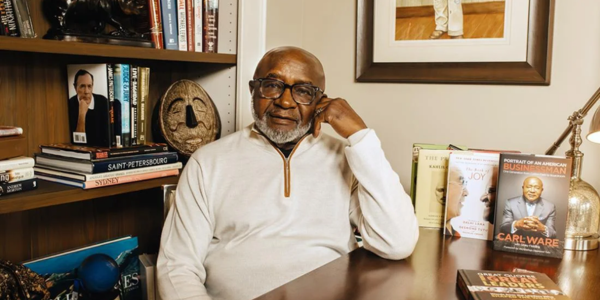
In 1991, Carl Ware is climbing ever higher on the corporate ladder at the Coca-Cola Company. The iconic corporation has just named him deputy group president of northeast Europe and Africa. As one of his first actions in the prestigious position, Ware schedules an in-person meeting at his London office with all the managers throughout Africa.
The gathering of executives is eye-opening.
“It was the epitome of the colonial system in Africa. All the managers — whether they were French, Afrikaners, Rhodesians, German or English — were white,” recalls Ware. “And if that wasn’t enough, all the expats from the U.S. in the London office in finance, marketing, legal and all those jobs were white males.”
Ware asks the men to raise their hands if they believe in the future of Africa. Hands raise. He then asks if they believe they could, within the next five years, find a Black African who could do their job. No hands raise.
He remembers their explanations: “They said they’d been looking and either couldn’t find one or, if they had, they’d been poached by other companies.”
Ware pushes back: “Don’t tell me that can’t be done,” he tells them, “Because it can. And that’s what we’re going to do.”

